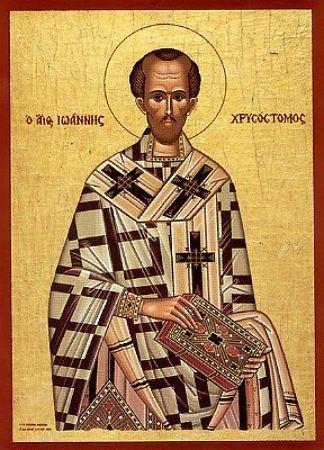The Beasts of the Heart
 One of the things I have really enjoyed recently is being invited to attend the Cambridge Presbyterian Church Theology Group. They are a pretty high-powered bunch! Hosted by the minister, Ian Hamilton, the group meets once a month to discuss pastoral issues found in the writings of great men of the past.
One of the things I have really enjoyed recently is being invited to attend the Cambridge Presbyterian Church Theology Group. They are a pretty high-powered bunch! Hosted by the minister, Ian Hamilton, the group meets once a month to discuss pastoral issues found in the writings of great men of the past.Last Wednesday our study was in John Chrysostom's "On the Priesthood", led by Dr. Chad van Dixhoorn. I had never read any Chrysostom (born around 349AD) before but was amazed by what I found. Chrysostom shows remarkable sensitivity both to the limitations of his own soul and to the needs of the men and women under his care. This book is no theoretical treatment, but one born out of personal experience.
The book is in the form of a (one-sided) dialogue between Chrysostom and his friend Basil, probably written after he himself had become a priest, but set in the earlier time when his friend Basil had just taken priestly orders. In the dialogue, Chrysostom, speaking of his own fears about the ministry to which he was ultimately called, says,
8. ... I know my own soul, how feeble and puny it is: I know the magnitude of this ministry, and the great difficulty of the work; for more stormy billows vex the soul of the priest than the gales which disturb the sea.When I read this, I seriously wondered whether I would have entered the ministry had I read this before my ordination! The 'beasts' that he fears are not from the outside but arise within under the temptation of office.
9. And first of all is that most terrible rock of vainglory, more dangerous than that of the Sirens, of which the fable-mongers tell such marvellous tales: for many were able to sail past that and escape unscathed; but this is to me so dangerous that even now, when no necessity of any kind impels me into that abyss, I am unable to keep clear of the snare: but if any one were to commit this charge to me, it would be all the same as if he tied my hands behind my back, and delivered me to the wild beasts dwelling on that rock to rend me in pieces day by day. Do you ask what those wild beasts are? They are wrath, despondency, envy, strife, slanders, accusations, falsehood, hypocrisy, intrigues, anger against those who have done no harm, pleasure at the indecorous acts of fellow ministers, sorrow at their prosperity, love of praise, desire of honor (which indeed most of all drives the human soul headlong to perdition), doctrines devised to please, servile flatteries, ignoble fawning, contempt of the poor, paying court to the rich, senseless and mischievous honors, favors attended with danger both to those who offer and those who accept them, sordid fear suited only to the basest of slaves, the abolition of plain speaking, a great affectation of humility, but banishment of truth, the suppression of convictions and reproofs, or rather the excessive use of them against the poor, while against those who are invested with power no one dare open his lips.
John Chrysostom, On the Priesthood, Book III:8,9
Chrysostom's treatise is a valuable reminder of the gravity of the office we hold. Who is up to the task? The answer is obvious, yet the arguments are intended to persuade Basil that he has done the right thing. No one is up to the task, except by the grace of God.


<< Home